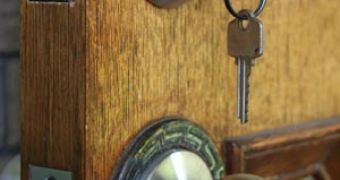Locksmithing might as well disappear entirely from the key duplicating business, seeing as how University of California – Sand Diego scientists have created the first computer software that analyzes specific reference points on a photograph of a key and then uses them to synthesize an accurate replica of that specific key. The developers say that the program is quite easy to design and that its applications are extended.
The main feature of this piece of software is that it can replicate a key that has been photographed from several hundred feet away. With high-end lenses and a decent digital camera, all the relevant details on a key can be stored and transferred to the replicating program without a problem. "Advances in digital imaging and optics have made it easy to duplicate someone's keys from a distance without them even noticing," said computer science professor, Stefan Savage.
Savage, who works at UC San Diego's Jacobs School of Engineering, added that "We built our key duplication software system to show people that their keys are not inherently secret," referring to the fact that most people are not aware of the importance of keeping the layout of their keys a secret from prying eyes. He also pointed out that on-line pictures showing credit cards are modified to conceal sensitive information, but key sets still appear uncensored, making them easy to replicate.
"If you go onto a photo-sharing site such as Flickr, you will find many photos of people's keys that can be used to easily make duplicates. While people generally blur out the numbers on their (...) driver's licenses before putting those photos on-line, they don't realize that they should take the same precautions with their keys," explained Savage.
The team working on the project says that, in the future, magnetic security features will also have to be added to standard keys, seeing as how they could easily be duplicated. Various types of chips are already implanted in car keys, which prevent the automobiles from starting if the used key is fake. Similar techniques could also be used to ensure only proprietary access to apartments and homes.

 14 DAY TRIAL //
14 DAY TRIAL //